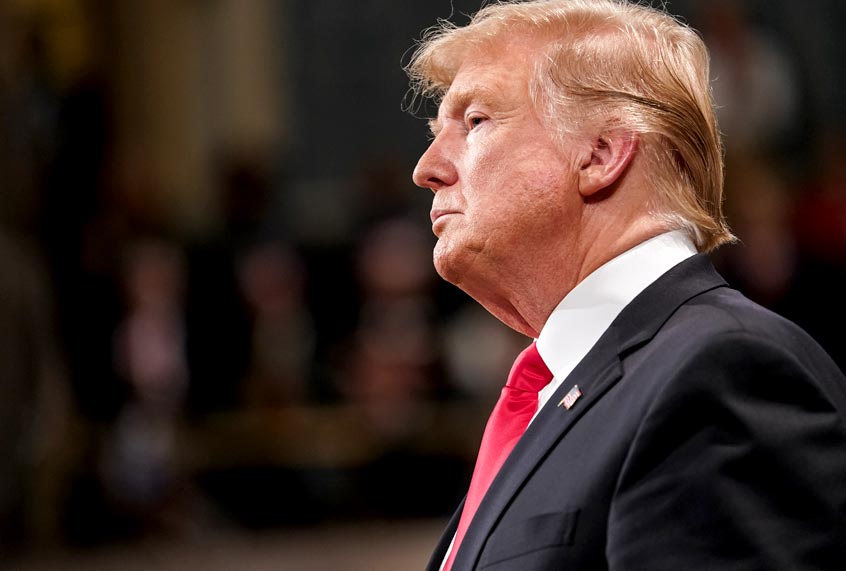President Donald Trump still desperately wants the border wall. But after engineering a failed month-long federal government shutdown to try to force Congress into giving him $5.7 billion for it, he is running out of options.
On Thursday, Politico reported that as Trump met with Senate Appropriations Chairman Richard Shelby, R-AL., he seemed open to a bipartisan compromise on border security — and that he is increasingly turning away from the idea of declaring a national emergency to build his border wall because his GOP allies in the Senate have no appetite to help back him up on such an action:
Though the White House has worked to prepare an emergency declaration invoking the president’s sweeping executive powers, several West Wing aides have warned that invoking it would alienate some conservatives who have otherwise been loyal to the White House. Lawmakers and activists on the right have been critical allies of the president on judicial nominations and have stressed that an emergency declaration could set a precedent for a future Democratic president to take far-reaching action on climate change or gun violence.
Trump has stopped musing as much about a national emergency, both publicly and privately. Asked if he’d been given marching orders or an ultimatum on a unilateral move by the president, Shelby said that didn’t happen.
“He didn’t say that. It was a very positive meeting,” said a beaming Shelby on Thursday. “He’s somewhat open, flexible.”
The White House has already mapped out how the executive order for an emergency declaration would work in theory, according to CNN. Trump would direct the Army Corps of Engineers to construct a border wall on seized private land in the “emergency” zone along the Southern border, and divert $7 billion from the Treasury, Pentagon, and Department of Homeland Security for the project, bypassing Congress altogether.
This strategy would have had several problems, however. First, Democrats could sue to block the emergency declaration. Second, the National Emergencies Act also grants Democrats the power to vote it down in the House, which would require the Senate to vote to approve it within one month or it would automatically be canceled — and it is unlikely that even the Republican majority in the upper chamber would provide the votes to keep it going.
Without a national emergency, Trump has only two options. He can either shut down the government again, which given polling from the last time would end in disaster for him, or he can do what he appears poised to do now: accept a compromise that won’t give him his $5.7 billion wall.
Trump is learning the hard way that there are no shortcuts when negotiating with Congress and that even his own allies are ready for him to make a deal.



